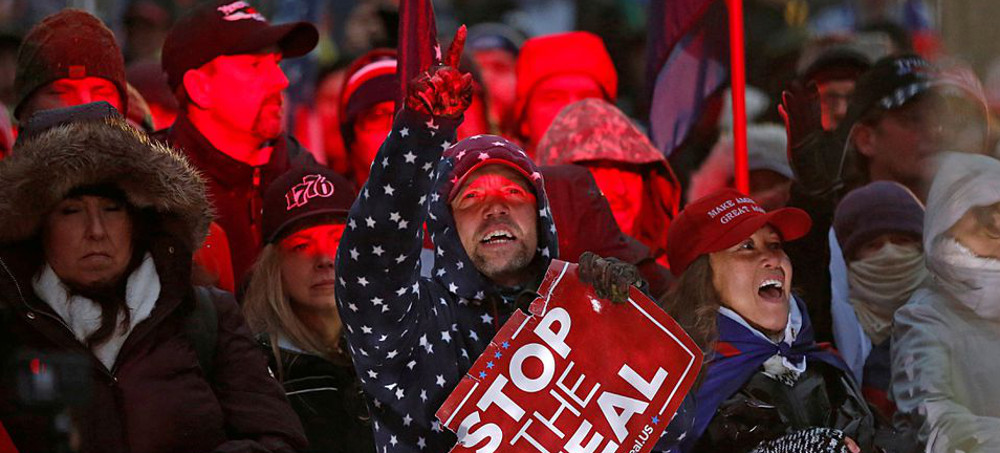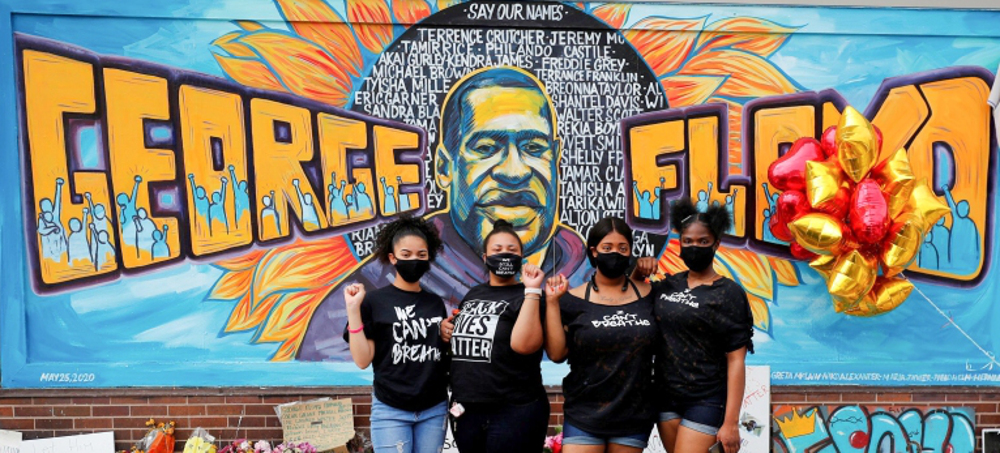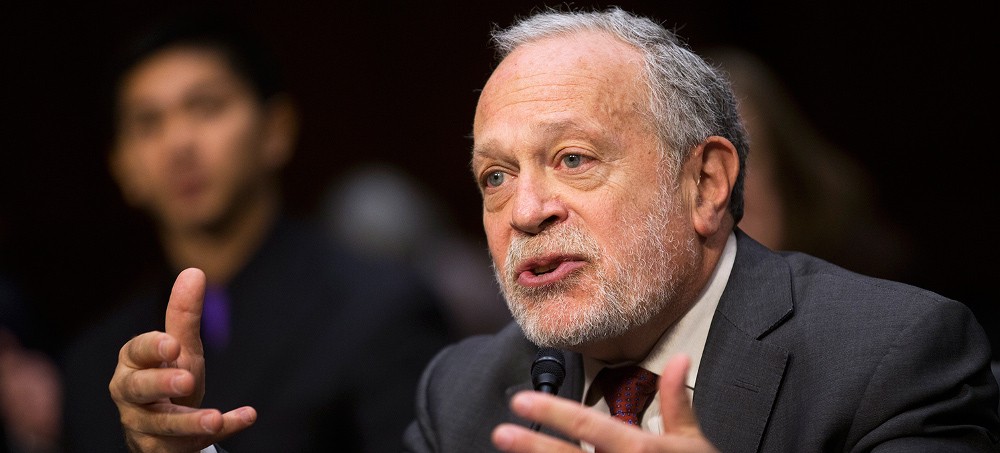Live on the homepage now!
Reader Supported News
Political cowardice means those funding Joe Biden’s ambitious social policy plan want to leave the mega-rich unscathed
The biggest surprise: they didn’t go after the huge accumulations of wealth at the top – representing the largest share of the economy in more than a century.
You might have thought Democrats would be eager to tax America’s 660 billionaires whose fortunes have increased by $1.8tn since the start of the pandemic, an amount that could fund half of Biden’s plan and still leave the billionaires as rich as they were before the pandemic began.
Elon Musk’s $138bn in pandemic gains, for example, could cover the cost of tuition for 5.5 million community college students and feed 29 million low-income public-school kids, while still leaving Musk $4bn richer than he was before Covid.
But senior House Democrats decided to raise revenue the traditional way, taxing annual income rather than giant wealth. They aim to raise the highest income tax rate and apply a 3% surtax to incomes over $5m.
The dirty little secret is the ultra-rich don’t live off their paychecks.
Jeff Bezos’s salary from Amazon was $81,840 last year, yet he rakes in some $149,353 every minute from the soaring value of his Amazon stocks, which is how he affords five mansions, including one in Washington DC which has 25 bathrooms.
House Democrats won’t even close the gaping “stepped-up basis at death” loophole, which allows the heirs of the ultra-rich to value their stocks, bonds, mansions and other assets at current market prices – avoiding capital gains taxes on the entire increase in value from when they were purchased.
This loophole allows family dynasties to transfer ever larger amounts of wealth to future generations without it ever being taxed. Talk about an American aristocracy.
Biden wanted to close this loophole but House Democrats balked.
You might also have assumed Democrats would target America’s biggest corporations, awash in cash but paying a pittance in taxes. Thirty-nine of the S&P 500 or Fortune 500 paid no federal income tax at all from 2018 to 2020 while reporting a combined $122bn in profits to their shareholders.
But remarkably, House Democrats have decided to set corporate tax rates below the level they were at when Barack Obama was in the White House. Democrats even kept scaled-back versions of infamous corporate loopholes such as private equity’s “carried interest”. And they retained special tax breaks for oil and gas companies.
What’s going on? It’s not that Democrats lack the power. They’re in one of those rare trifectas when they hold the presidency and majorities, albeit small, in the House and Senate.
It’s not the economics. Americans have been subject to decades of Republican “trickle-down” nonsense and know full well nothing trickles down. Billionaires hardly need to have their fortunes grow $100,000 a minute to be innovative. And as I’ve stressed, there’s more money at the top, relative to anywhere else, than at any time in the last century.
Besides, Democrats need the revenue to finance their ambitious plan to invest in childcare, education, paid family leave, healthcare and the climate.
So what’s holding them back?
Put simply, Democrats are reluctant to tax the record-breaking wealth of the rich and big corporations because of … the wealth of the rich and big corporations.
Many Democrats rely on that wealth to bankroll their campaigns. They also dread becoming targets of well-financed ad campaigns accusing them of voting for “job-killing” taxes.
Republicans sold their souls to the moneyed interests long ago, but the timidity of House Democrats shows just how loudly big money speaks these days even in the party of Franklin D Roosevelt.
That’s because there’s far less of it on the other side. Through the first half of 2021, business groups and corporations spent nearly $1.5bn on lobbying, compared with roughly $22m spent by labor unions and $81m by public interest groups, according to OpenSecrets.org.
Progressive House Democrats will still have a say. Senate Democrats haven’t weighed in. But there’s reason for concern.
The looming debate over taxes is really a debate over the allocation of wealth and power. As that allocation becomes ever more grotesquely imbalanced, this debate will loom ever larger over American politics.
Behind it will be this simple but important question: which party represents average working people and which shills for the rich? Democrats, take note.
 Supporters of Donald Trump gather at a rally at Freedom Plaza, ahead of the U.S. Congress certification of the November 2020 election results, during protests in Washington, January 5, 2021. (photo: Jim Urquhart/Reuters)
Supporters of Donald Trump gather at a rally at Freedom Plaza, ahead of the U.S. Congress certification of the November 2020 election results, during protests in Washington, January 5, 2021. (photo: Jim Urquhart/Reuters)
In Arizona, the contenders for the elections-chief office, secretary of state, include Republican state lawmaker Mark Finchem, who attended the ‘Stop the Steal’ rally before the deadly insurrection and spoke at a similar gathering the previous day. In Nevada, one strong Republican candidate for elections chief is Jim Marchant, who unsuccessfully sued to have his own defeat in a 2020 congressional race reversed based on unfounded voter-fraud claims.
The three candidates are part of a wider group of Republican secretary-of-state contenders in America’s swing states who have embraced former President Donald Trump's false claims that he lost a “rigged” election. Their candidacies have alarmed Democrats and voting-rights groups, who fear that the politicians who tried hardest to undermine Americans’ faith in elections last year may soon be the ones running them - or deciding them, in future contested votes.
Jena Griswold, chair of the Democratic Association of Secretaries of State and Colorado's top elections official, said the secretary-of-state races reflect a much broader exploitation of phony voter-fraud claims by Republicans seeking all levels of elected office.
"That is ‘code red’ for democracy," she said in an interview.
Secretary-of-state candidates face primary elections next spring and summer and general elections on Nov. 8, 2022, along with the midterm congressional contests.
Reuters interviewed nine of the 15 declared Republican candidates for secretary of state in five battleground states -- Arizona, Georgia, Wisconsin, Michigan, Nevada -- and reviewed public statements by all of the candidates. Ten of the 15 have either declared that the 2020 election was stolen or called for their state’s results to be invalidated or further investigated.
Only two of the nine candidates Reuters interviewed said that Biden won the election.
The group of 15 includes Brad Raffensperger, the Georgia secretary of state and the only incumbent Republican in the five battleground states who is seeking re-election. Raffensperger has consistently rejected Trump’s stolen-election allegations in the face of intense pressure from many fellow Republicans to overturn Biden’s win in the state.
Nearly all of the Republican contenders have stressed a need to curb mail-in voting, to limit ballot drop boxes and to take other steps to curtail ballot access. A majority said they backed a Republican push for more audits or other investigations of the 2020 vote, despite dozens of audits, recounts and court rulings that confirmed Biden’s victory.
Shawnna Bolick - an Arizona state representative and a Republican contender for state elections chief - has gone a step further. She proposed a law empowering the Arizona legislature, currently controlled by Republicans, to overrule the secretary of state’s certification of popular vote results. That call for a drastic change in how America chooses presidents comes after Trump’s unsuccessful attempt to get Republicans in states he lost to send electors for him instead of Biden to Congress. (See graphic on how the U.S. Electoral College works.)
Bolick said she intended to make certification “more democratic” and that her bill did not allow lawmakers to pick a winner.
Boris Epshteyn, a former special assistant to Trump, said the party is focused on secretary-of-state elections. So is Trump, who has endorsed candidates in three states: Hice in Georgia; Finchem in Arizona; and Kristina Karamo, a Michigan educator he praised for parroting his false claims of winning that state.
"It's vital they have the right ideals," Epshteyn said of Republican secretary-of-state candidates. "That includes, first and foremost, getting to the bottom of the 2020 election as well as making sure widespread voter fraud doesn't happen going forward."
It’s highly unusual for a former U.S. president to endorse secretary-of-state candidates. “President Trump is proud to endorse candidates who fight for election integrity,” said Liz Harrington, a Trump spokeswoman.
Democrats and nonpartisan election experts say it appears that Trump allies - having been foiled in their attempt to reverse Biden’s victory - are now trying to make it easier to overturn future results.
Republican State Leadership Committee spokesman Andrew Romeo said his organization acknowledges that Biden beat Trump in the 2020 election but that it proudly supports candidates focused on making it “easier to vote and harder to cheat for all Americans.”
The Republican secretary-of-state candidates are part of a much larger party effort to exert more control over election administration following Trump’s false fraud claims. At least 18 Republican-led states have passed voting restrictions they say are intended to ensure election integrity. Democrats argue such measures are intended to suppress voting because Republicans fare better in low-turnout elections.
Georgia and Arizona have put greater power over elections in the hands of Republican-controlled state legislatures. In Pennsylvania, Wisconsin, Michigan and Arizona, Republican lawmakers are pursuing partisan audits of the 2020 vote. The long-delayed results of the audit in Maricopa County, Arizona - launched five months ago - are scheduled for release on Friday.
The false voter-fraud claims by Trump and his allies have inspired hundreds of threats of hanging, firing squads, bombs and other violence against election officials and their families, Reuters has reported this year. A Reuters investigation this month revealed that U.S. law enforcement has held almost no one accountable for the barrage of threats and intimidation of election administrators.
CAMPAIGN DONATIONS POUR IN
Secretaries of state oversee elections in most U.S. states and have significant power over how votes are cast, counted and certified. They typically approve vote tallies in individual counties and the overall presidential results.
In normal times, most voters might struggle to name their secretary of state or detail their election-oversight duties. But these once-overlooked races are drawing far more attention and money this year from both parties, according to interviews with party officials and a Reuters review of political fundraising records.
Campaign finance reports from Georgia and Michigan show donors from both parties piling aggressively into their races early in the cycle. Georgia candidates raised $1.8 million between February and June - nearly four times what was raised in the same period of 2017 ahead of the last Georgia secretary-of-state election in 2018, according to campaign finance disclosures.
In Georgia, Trump allies are eager to unseat incumbent Republican Raffensperger after he rebuffed Trump's request to "find" just enough votes to reverse Trump’s Georgia loss.
David Becker, an election expert and former Justice Department voting-rights attorney, said Raffensperger and other secretaries of state last year formed a bulwark to protect democracy under extreme pressure from Trump and his allies. The prospect of those allies running elections, he said, “should chill all of us.”
"If one of these con artists became Secretary of State, and President Trump tried to make the call he made to Secretary Raffensperger - to someone with less integrity, who denies democracy - what happens if that person takes that call?”
This year, one prominent donor to pro-Trump secretary-of-state candidates is the Presidential Coalition, a conservative group founded by David Bossie, a former Trump deputy campaign manager who was initially tapped in November to lead Trump's failed post-election court challenges before testing positive for COVID-19. The coalition gave Hice $7,000 in June, campaign financial disclosures show. Bossie said in an interview that the coalition is looking at backing Finchem in Arizona and other secretary-of-state candidates in Nevada, Michigan and "many other states.”
Democrats say they are just as energized to win secretary-of-state races. The party’s fundraising arm for those campaigns, chaired by Griswold, has raised $1.1 million in the first six months of 2021, according to filings with the U.S. Treasury Department. Griswold said they aim to raise at least $10 million before the election.
TRUMP ENDORSEMENTS
In Arizona, Democratic Secretary of State Katie Hobbs is running for governor, leaving her seat an open race. She won by a single percentage point in 2018, and both parties expect another extremely close race next year.
Trump last week endorsed Finchem for Arizona secretary of state, praising his “powerful stance on the massive Voter Fraud.” The state lawmaker is now seen as a favorite in the Republican primary. Finchem declined an interview request.
In addition to promoting voter-fraud claims and calling for Arizona to decertify Biden’s win, Finchem has expressed views linked to the QAnon conspiracy theory, which casts Trump as a savior figure and elite Democrats as a cabal of Satan-worshipping pedophiles and cannibals.
Finchem was a featured speaker at the Jan. 5 "pre-rally" in Washington, a warm-up for the bigger gathering at which Trump himself spoke. “When you steal something, that’s not really a win; that’s a fraud,” Finchem said. Addressing members of Congress, he said: “This ain’t going away.”
One of his competitors for the Republican nomination is Bolick, the lawmaker who introduced the bill to allow the legislature to revoke the secretary of state’s election certification. The bill died in committee.
In an interview, Bolick tried to draw a distinction between herself and Finchem, saying she was “not part of ‘Stop the Steal.’”
But like Finchem, Bolick signed onto a resolution in December urging Congress to award Arizona’s Electoral College votes to Trump, despite his loss to Biden by more than 10,000 votes.
In Nevada, Marchant said he expects to get Trump’s endorsement. Trump endorsed Marchant when he ran unsuccessfully last year for Congress. If elected secretary of state, Marchant said, he would seek to end all early voting and ban the use of voting machines temporarily while the devices are examined for evidence of election-rigging.
Marchant could not provide evidence of fraud in Nevada when asked for it in an interview.
In Wisconsin, businessman and secretary of state candidate Jay Schroeder is considered the frontrunner for the Republican nomination. He said in an interview that "there is lots of reasonable doubt" as to whether Biden won the election.
The secretary of state in Wisconsin, unlike most other states, does not oversee elections. Schroeder is campaigning to change that: He advocates for stripping election oversight power from the bipartisan Wisconsin Elections Commission and giving it back to the secretary of state, which controlled elections until a decade ago.
If he gets his way, he said, he would get tough with counties that don't follow the law: "I would call for an audit, and if the county refused that, I would not certify their results.”
GEORGIA RACES TO TEST TRUMP’S CLOUT
Georgia is shaping up to be a key 2022 battleground, with competitive Senate, governor and secretary-of-state races next year. These elections will be a major test of whether Republicans who crossed Trump can survive primaries - and whether those who backed his election-fraud falsehoods can win general elections against Democrats.
With Trump's support, Hice is seen as the frontrunner in Georgia's Republican nominating contest. Hice has raised $580,000 between February and June, more than doubling Raffensperger's haul of $249,000, according to campaign finance disclosures.
Hice has been among the most strident backers of Trump’s baseless stolen-election claims. In the hours after the Jan. 6 riots, Hice was among 147 Republican members of Congress who voted against certifying Biden’s election win in at least one of two states that came up for a vote.
Hice did not respond to requests for comment on his candidacy, his voter-fraud allegations, or his “1776” social-media post on Jan. 6, which was deleted after Trump supporters breached the Capitol.
Bossie's group supported Raffensperger in 2018 but now condemns his failure "to fight for what the overwhelming number of Republican voters in Georgia were demanding, which was ballot integrity," Bossie said. "2020 was a total disgrace."
Multiple recounts and audits have confirmed Biden won Georgia by about 12,000 votes. Raffensperger has repeatedly described the November election as secure and told Reuters in a recent interview that Trump’s surrogates don’t have the facts to support their allegations.
Since the vote, Raffensperger and his family have been inundated with threats of violence, causing them to go into hiding at one point and to take other precautions, including starting their car remotely to guard against bombs, the Reuters investigations revealed.
Hice's candidacy is not without risk for Republicans. His vocal support of Trump’s false voter-fraud allegations could drive away some moderates and independents in a general election, political consultants said.
Another Republican contender in Georgia is David Belle Isle, who lost a runoff to Raffensperger in 2018 and is running again next year.
Belle Isle acknowledged he had no “smoking gun" to prove widespread fraud. But he said he believes Biden should not have been declared the winner because too few absentee ballots were rejected despite their potential for fraud.
Raffensperger, he said, “certified the wrong result."
 California has barred mega-retailers from firing warehouse workers for missing quotas. (photo: Getty)
California has barred mega-retailers from firing warehouse workers for missing quotas. (photo: Getty)
The measure also bars Amazon, the online retail giant, and similar companies from disciplining workers for following health and safety laws and allows employees to sue to suspend unsafe quotas or reverse retaliation. The bill applies to all warehouse distribution centers, though proponents were driven by Amazon's dominance.
“We cannot allow corporations to put profit over people,” Newsom, a Democrat, said in a news release announcing he had signed the law.
The law, AB 701, was authored by Democratic Assemblywoman Lorena Gonzalez, a lawyer and former labor leader. She accused Amazon of disciplining warehouse workers at the direction of “an algorithm” that tracks employees' activities and can determine that anything not directly related to moving packages is “off-task.”
“Amazon is pushing workers to risk their bodies for next-day delivery, while they can’t so much as use the restroom without fearing retaliation," Gonzalez said when the Legislature passed her bill.
Amazon did not respond for requests for comment on her legislation or allegations. The law gives large warehouse employers 30 days to disclose quotas to employees.
Workers who think their quotas lead to unsafe behavior can ask for 90 days' worth of documentation of how their work speed meets or fails the quota. Any discipline within that 90 days is presumed to be retaliation, as is any discipline within 90 days of an employee complaining to the company or a state agency about an unsafe quota.
Gonzalez cited reports from several labor advocacy groups including the Warehouse Worker Resource Center and the Strategic Organizing Center to assert that Amazon employees are far more likely to suffer serious injuries than those working in other warehouses.
California's workplace regulators would have to consider investigating if a worksite or employer has an annual employee injury rate at least 1.5 times higher than the warehousing industry’s average annual injury rate, under her bill.
Yesenia Barrera, a former warehouse employee who is now an organizer with the Warehouse Worker Resource Center, recalled the constant pressure to perform and “carrying, bending, reaching, twisting and packing items from 30-60 pounds for hours a day.”
But 27 business organizations led by the California Retailers Association objected that California is home to thousands of warehouse distribution centers that together “provide quality jobs to hundreds of thousands of working-class Californians.”
The groups in a letter to lawmakers cited U.S. Department of Labor data that wages in the transportation and warehousing sector have risen more than 17% in the last year.
Amazon alone says it employs more than 150,000 Californians, including at dozens of “fulfillment centers.”
The legislation is “both burdensome and needlessly overbroad,” the business groups said, arguing that workers are protected by existing occupational safety standards.
In a statement, California Retailers Association President Rachel Michelin said the measure “will exacerbate our current supply chain issues, increase the cost of living for all Californians and eliminate good-paying jobs."
“With California’s ports facing record backlogs of ships waiting off the coast and inflation spiking to the fastest pace in 13 years, AB 701 will make matters worse for everyone — creating more backordered goods and higher prices for everything from clothes, diapers and food to auto parts, toys and pet supplies," Michelin said.
Warehouse workers in California are a disproportionate 54% Latino and 9.5% Black, according to the Los Angeles County Federation of Labor, which co-sponsored the bill.
It argued those groups also have fewer job options and were more likely to suffer during the coronavirus pandemic that increased consumers' reliance on on-line shopping and boosted retailers' profits.
 An F-35 fighter jet pilot and crew prepare for a mission at Al-Dhafra Air Base in the United Arab Emirates on Aug. 5, 2019. (photo: AP)
An F-35 fighter jet pilot and crew prepare for a mission at Al-Dhafra Air Base in the United Arab Emirates on Aug. 5, 2019. (photo: AP)
Biden’s decision dashed hopes that he would change the U.S. relationship with autocratic allies and live up to his lofty rhetoric that human rights would be at the center of his foreign policy. The weapons sales also underscored how the Abraham Accords — a series of agreements signed last year for Arab states to normalize relations with Israel — were built on a contradiction: Then-President Donald Trump offered most of the countries involved substantial arms deals that will ultimately make the Middle East less safe and stable.
The Biden administration should reconsider the sales, under a new proposal it is reportedly developing that would condition weapons sales to a country’s human rights record. The UAE has an abysmal history of supporting conflict in the region, especially over the past decade. Until it withdrew most of its ground troops in 2019, the UAE was the main partner of the Saudi-led war in Yemen, which has killed an estimated 233,000 people and instigated one of the world’s worst humanitarian disasters. Even after the withdrawal, the UAE continued providing weapons and support to abusive local militias in Yemen.
The UAE has also carried out airstrikes and drone attacks in Libya, and provided weapons to Libyan forces led by Khalifa Hifter, in violation of a U.N. arms embargo. A report by U.N. experts issued in December 2019 found that the UAE “routinely and sometimes blatantly supplied weapons” to its Libyan allies, including drones, air defense systems and armored vehicles.
Moreover, the UAE has been at the center of two recent scandals that harm U.S. interests. Some of the UAE’s most senior leaders, including de facto ruler and Abu Dhabi crown prince Mohammed bin Zayed (known as MBZ), were invoked in the indictment of former Trump fundraiser Thomas Barrack. He was arrested in July on charges of failing to register as a foreign lobbyist, obstruction of justice and lying to investigators. At the UAE’s behest, according to prosecutors, Barrack tried to persuade Trump and his advisers to weaken the U.S. relationship with the UAE’s rival, Qatar, which is home to the largest American military base in the Middle East. That base — and the Qatari government’s role as an intermediary with the Taliban — turned out to be critical to the U.S. evacuation effort from Afghanistan.
The UAE was also one of the authoritarian countries that deployed the Pegasus software developed by Israeli firm NSO Group to reportedly spy on dissidents, journalists, political opponents and Western officials. The UAE’s leaders used record oil revenue in the early 2000s to improve their image with the West, building branches of museums such as the Louvre and Guggenheim, opening Western university campuses and funding literary festivals. But after the Arab Spring uprisings in 2011, they became worried about their own ability to stay in power and turned more repressive.
The UAE began a crackdown on internal dissent, arresting dozens of government critics. It scaled back meager freedoms and worked to undermine Islamist movements throughout the region, especially the Muslim Brotherhood in Egypt. It also built its own sophisticated hacking and cyberwarfare operation, using former U.S. intelligence officials. On Sept. 14, the Justice Department announced that three former U.S. operatives had admitted to hacking crimes and providing the UAE with advanced technology while they worked for DarkMatter, a company linked to the UAE government.
The Biden administration should not reward the UAE’s destabilizing activities, aggressive foreign policy and internal repression with a massive sale of dozens of F-35 fighter jets, long-range armed drones and $10 billion worth of missiles and bombs. More broadly, the large-scale weapons deal sends the wrong message to the Middle East and the world. The highly touted Abraham Accords that supposedly broke a decades-long bottleneck in Arab-Israeli peacemaking have turned into an arms bonanza.
One day after announcing a normalization deal between Israel and Morocco, the Trump administration notified Congress of its plans to sell $1 billion in sophisticated drones and missiles to Morocco. As he prepared to sign the Abraham Accords at the White House last year, then-Israeli Prime Minister Benjamin Netanyahu came with his own weapons wish list: $8 billion in new F-35s, V-22 Osprey aircraft and Apache attack helicopters. It’s unclear how far along the Israeli request is in the approval process, but after clearing the UAE’s massive deal, the Biden administration will have a hard time rejecting other sales.
Biden missed the chance to fix one of his predecessors’ final mistakes: turning the normalization agreements between Israel and Arab countries into an arms race that could fuel new conflicts in the Middle East. If Biden continues down this path, he will be complicit in a fresh wave of regional instability and bloodshed.
 Protesters demanding police reform memorialised George Floyd, who died in Minneapolis police custody in May 2020. (photo: Adam Bettcher/Reuters)
Protesters demanding police reform memorialised George Floyd, who died in Minneapolis police custody in May 2020. (photo: Adam Bettcher/Reuters)
Leading Democratic lawmaker says talks with Republicans failed to reach a compromise, urges President Biden to act.
Democratic Representative Karen Bass said on Wednesday that negotiations she and Democratic Senator Cory Booker had held with Republican Senator Tim Scott had proved fruitless.
“We accepted significant compromises, knowing that they would be a tough sell to our community but still believing that we would be moving the needle forward on this issue,” Bass said in a statement on Wednesday.
“But every time, more was demanded to the point that there would be no progress made in the bill that we were left discussing,” Bass said.
The US House of Representatives passed a sweeping police reform bill in March that would ban chokeholds and combat racial profiling. But the proposed law – named for George Floyd, a Black man who was killed by Minneapolis police – faced Republican opposition. Floyd’s death in 2020 triggered nationwide protests against police brutality, rejuvenating the Black Lives Matter movement that had been founded in 2013.
Bass and Booker had been negotiating a narrower bill with Scott that could potentially win support from enough Republicans to pass the narrowly divided US Senate.
A key sticking point had been the problem of “qualified immunity“, a legal doctrine adopted by US courts that frequently protects police from civil lawsuits in cases of abuse or death. Republicans had objected to a Democratic compromise proposal to allow such lawsuits to proceed.
The House bill, drafted by the Congressional Black Caucus, had passed on a party-line vote of 220 to 212. It would need support from at least 10 Republicans to pass the evenly divided US Senate.
In addition to banning chokeholds like the one that killed Floyd, the Democratic bill would have established a national database to record complaints and disciplinary actions against police officers who use excessive force against civilians.
Democrats also sought to ban no-knock warrants in drug cases like the one used in the raid in Louisville, Kentucky, in which a Black woman, Breonna Taylor, was killed by police gunfire in her apartment where she had been sleeping when they executed the warrant.
Representative Bass called on President Joe Biden to move forward with executive orders to implement revisions to US policing.
“With our counterparts unwilling to come to a compromise, we have no other option than to explore further avenues to stop police brutality in this country,” Bass said.
More than 1,120 people were killed by police in the US in 2020 and as of mid-September, police have killed 745 in 2021 according to data tracked by Campaign Zero, a reform advocacy group.
US civil rights leaders and Floyd’s family have called on Biden and members of Congress to act on police reform.
“We are disappointed, the president is disappointed,” White House press secretary Jen Psaki said in a media briefing on Wednesday. “Unfortunately, Republicans rejected reforms that even the previous president has supported and refused to engage on key issues that many in law enforcement were willing to address,” Psaki said.
White House officials would be consulting with Biden on executive actions the president can take to advance “long overdue” police reforms, Psaki said.
Floyd’s death was “a stain on the soul of America”, Biden said in a statement later on Wednesday.
Biden said the White House would consult with victims families, law enforcement and civil rights leaders to “define a path forward” including “potential further executive actions”.
The US Justice Department under Biden has opened investigations into patterns of excessive use of force by police in a number of US cities including Minneapolis, Phoenix and Louisville. Last week, the department issued a new policy limiting the use of chokeholds and no-knock warrants by federal law enforcement.
 Displaced Yemenis receive humanitarian aid provided by the UN High Commissioner for Refugees in the northwestern province of Hajjah on 1 August 2021. (photo: AFP)
Displaced Yemenis receive humanitarian aid provided by the UN High Commissioner for Refugees in the northwestern province of Hajjah on 1 August 2021. (photo: AFP)
David Beasley says five million Yemenis could face ration cuts by December unless international donors step in
Speaking at a virtual gathering of aid and development ministers on Wednesday, David Beasley, the director of the UN's World Food Programme (WFP), described a worsening humanitarian crisis in Yemen, where a Houthi rebel offensive is making gains in the strategic region of Marib.
"We're literally looking at 16 million people marching towards starvation," Beasley said. "We need this war to end, number one. If donors are getting fatigued, well, end the war. World leaders need to put pressure on all parties involved in this conflict because the people in Yemen have suffered enough."
The war in Yemen erupted in September 2014 when the Houthis seized the capital, Sanaa, sparking a civil war that forced President Abd-Rabbu Mansour Hadi to seek refuge in Aden and then Saudi Arabia.
The kingdom and its regional allies, mainly the United Arab Emirates, intervened in March 2015 and have since carried out more than 22,000 air strikes in an effort to roll back the rebels, with one-third striking non-military sites - including schools, factories and hospitals, according to the Yemen Data Project.
The protracted conflict has seen more than 230,000 people killed, an estimated four million displaced, and has left 80 percent of the country's 29 million people dependent on aid for survival.
The UN has declared it the "world's worst humanitarian crisis", as heavy artillery and air strikes have hampered access to health care and increased pressure on the few facilities that are still functioning.
In Wednesday's address, Beasley said that unless donors stepped in, more than three million people could face ration cuts by October and five million by December.
Ahead of the meeting, Muhsin Siddiquey, the Yemen director for the charity Oxfam, said a staggering 99 percent of Yemenis had not been vaccinated against Covid-19, with the country battling a third deadly wave of infections.
"Vaccination is a simple solution that would save lives, but the international community is failing the people of Yemen who need doses now," Siddiquey said.
"We need the vaccines that have been promised, but it is also shameful that having bought up all the vaccines for themselves, rich countries like the UK and Germany are blocking the solutions."
 Gray wolf. (photo: Tom Gable/AP)
Gray wolf. (photo: Tom Gable/AP)
The Chippewa tribes say treaties give them rights to half of the wolf quota in territory they ceded to the United States in the mid-1800s. But rather than hunt wolves, the tribes want to protect them.
The tribal lawsuit comes three weeks after a coalition of wildlife advocacy groups sued to stop Wisconsin’s wolf hunt this fall and void a state law mandating annual hunts, arguing that the statutes don’t give wildlife managers any leeway to consider population estimates.
Hunters blew past their limit during a court-ordered hunt in February. The state Department of Natural Resources set the quota at 119 but hunters killed 218 wolves in just four days, forcing an early end to the season.
Conservationists then deluged the DNR with requests to cancel this fall's hunt out of concerns it could devastate the wolf population. DNR biologists recommended setting the fall quota at 130. But the agency’s board last month set the kill limit at 300 animals. Assuming the tribes claim their half but don't hunt, the working quota for state-licensed hunters likely would be 150 wolves. The lawsuit alleges the board's decision to set the quota at 300 was a deliberate move to nullify the tribes' share and was not based on science.
The DNR’s latest estimates put Wisconsin's wolf population at roughly 1,000. Opponents say hunters probably killed at least a quarter of the population if poaching is included.
“In our treaty rights, we’re supposed to share with the state 50-50 in our resources and we’re feeling that we’re not getting our due diligence because of the slaughter of wolves in February,” John Johnson Sr., president of the Lac du Flambeau Band of Lake Superior Chippewa Indians, said in a statement announcing the lawsuit.
The Ojibwe word for “wolf” is Ma’iingan, and the Indigenous people of the Great Lakes region often call themselves Anishinaabe. The wolf holds a sacred place in their creation story.
"To the Anishinaabe, the Ma’iingan are our brothers. The legends and stories tell us as brothers we walk hand in hand together. What happens to the Ma’iingan happens to humanity,” Marvin Defoe, an official and elder with Red Cliff Band of Lake Superior Chippewa Indians, said in the statement.
The six tribes are being represented by Earthjustice, which is one of several groups that are also suing the federal government over the Trump administration’s decision last November to lift Endangered Species Act protections for gray wolves across most of the U.S. and return management authority to the states.
Gray wolves in Wisconsin, Minnesota and Michigan are considered part of the western Great Lakes population, which is managed separately from wolves in western states. The Biden administration last Wednesday said federal protections may need to be restored for western wolves because Republican-backed state laws have made it much easier to kill the predators. The U.S. Fish and Wildlife Service's initial determination that western wolves could again be imperiled launched a yearlong biological review.
Dozens of tribes asked the Biden administration one day earlier to immediately enact emergency protections for gray wolves across the country, saying states have become too aggressive in hunting them. They asked Interior Secretary Deb Haaland to act quickly on an emergency petition they filed in May to relist the wolf as endangered or threatened.
Follow us on facebook and twitter!
PO Box 2043 / Citrus Heights, CA 95611


